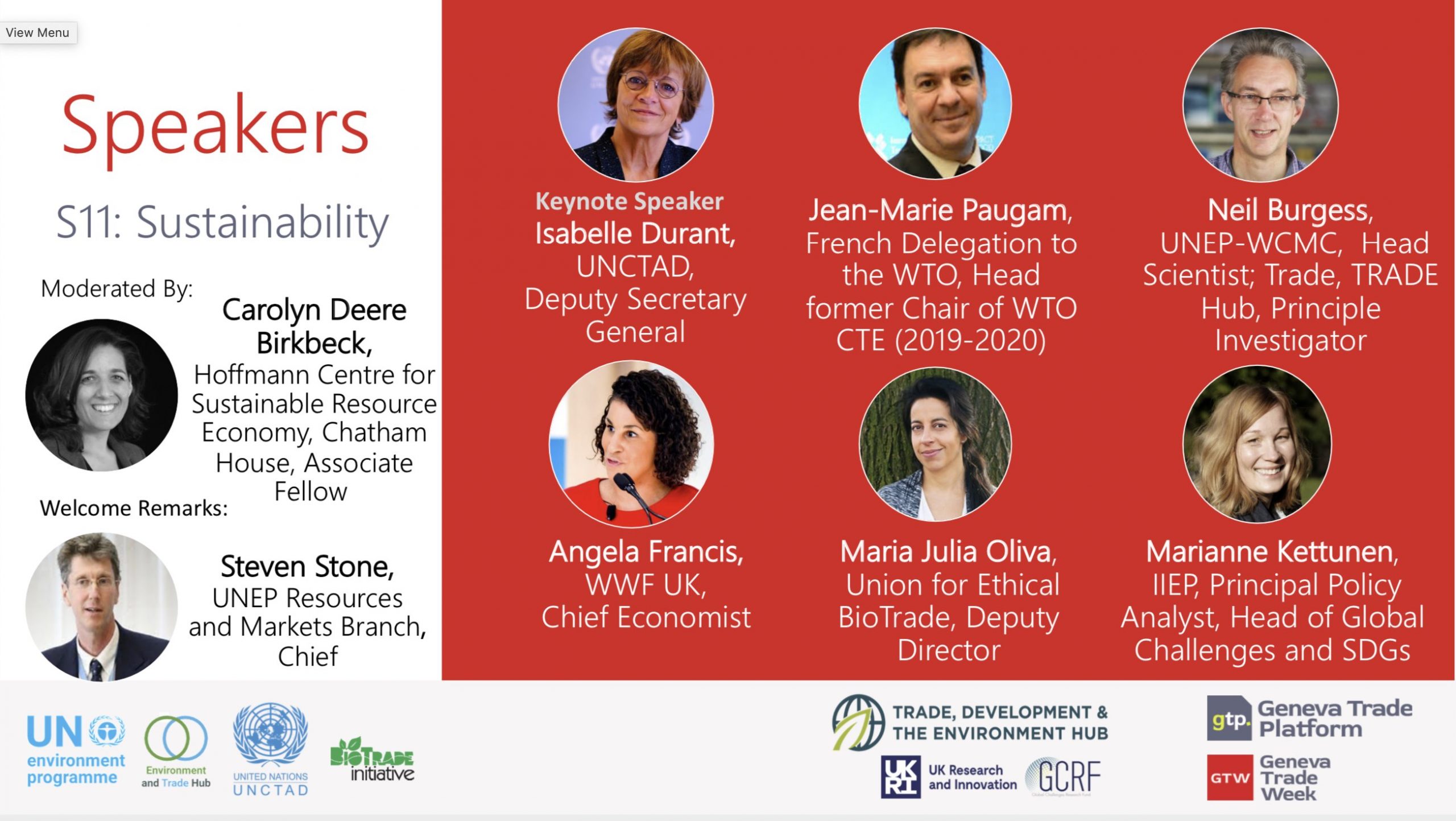The UK government’s Global Challenges Research Fund organized and supported a session at the (virtual) Geneva Trade Week 2020, a spin-off of the habitual World Trade Organization (WTO) Public Forum, organized by the newly founded Geneva Trade Platform. The session was jointly hosted by one of the Hub’s core partner organizations, the United Nations Environment Programme (UNEP), in cooperation with UNCTAD (United Nations Conference on Trade and Development).
The session zoomed in on “Trade, Biodiversity & Natural Resources: What role for Trade Policy in a New Deal for Nature?”, and highlighted the importance of fostering an integrated approach towards trade, biodiversity and sustainable use of natural resources.
In his welcome address, UNEP Green Economy Chief Steven Stone reminded that we face a twin challenge of safeguarding two public goods: biodiversity conservation, and a functioning multilateral trade system.
UNCTAD Deputy Secretary General further highlighted the close interconnection between the trade and nature, pointing out that “trade can and must be part of any solution to biodiversity loss”. This was echoed by Jean-Marie Paugam, Head of the French Delegation to the WTO, who highlighted that “nature can no longer been seen as an externality– it must form an integral part of trade.”
Adding to the discussion from a scientific perspective, Prof. Neil Burgess, UNEP-WCMC Chief Scientist and Principal Investigator of the GCRF TRADE Hub, noted that increasingly sophisticated scientific methods allow us to understand and isolate trade-related impacts, and that the GCRF TRADE Hub will develop these further in the next years.
Finally, WWF UK’s Chief Economist, Angela Francis, IEEP Global Policy Lead Marianne Kettunen, and Maria Julia Oliva, Deputy Director at the Union for Ethical BioTrade, provided their perspectives on key policy levers that can promote a mutually supportive relationship between trade and nature, by aligning agricultural incentives, promoting Sustainability Standards, and improving Sustainability Impact Assessments in Preferential Trade Agreements (PTAs).
